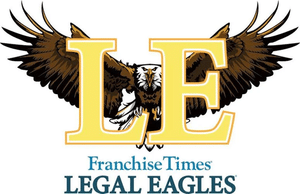This article was featured in the April issue of Franchise Dictionary Magazine.
Hidden Treasure

Great unit economics will drive a franchise system to growth and profitability. Each franchised location is a building block to the overall financial metrics. Having advised hundreds of franchisors over the years, one area that many franchisors neglect is encouraging low-performing franchisees to transition the business to a new owner. It’s not an easy conversation to have, and it’s also sometimes unclear who on the management team should be the one having the conversation. For franchisors looking to improve their overall unit economics, focusing on franchise transfers can be a hidden treasure.
Underperforming franchisees come in many flavors. Some are just not good business owners. Some are not dedicating the time and capital to maximize all the system has to offer. Many are burned out, bored and just not dedicated like they were when they first signed up. And of course, some are structurally deficient with a bad location, massive local competition or insufficient potential customers in their immediate area. The last reason is harder to overcome, however a highly motivated, well-capitalized new franchisee can overcome a strong local headwind. Especially if they are able to acquire the location at a discount.
Experience dictates that a transfer of an underperforming location to a fresh franchisee will almost always increase the unit’s revenue as the new owner focuses on the system with energy and vigor.The buyer will go in with realistic expectations using accurate historical numbers as their baseline. Everyone buys a new business with a plan to grow it. Most will finance it and should build into their purchase the funds to market, improve and bring the business up to current brand standards.
So why do most franchisors, especially emerging brands, look at transfers as an afterthought? The breakdown in making this an effective strategy often comes from the franchisor’s lack of focus and the appointment of one leader to direct the efforts. Franchise sales usually looks at transfer negatively as each lead that buys a transfer is someone who could have acquired a new location. In fact, many development people are paid less commission for a transfer while being asked to shepherd the buyer through a much more complex and time-consuming process. The operations team has built into their DNA support and service of current franchisees; for them to suggest a transfer is almost disloyal to their mission and an admission they have failed.
The leadership team of a franchisor needs to think about the long-term health, growth and potential that exist in taking a struggling or even just a stagnant franchisee and unleashing the potential of the location by recruiting and coordinating a transfer to a new owner. Someone on the leadership team needs to own this process and be accountable for its success.
To see all of Tom’s featured articles on The Franchise Dictionary Magazine, visit this page.







